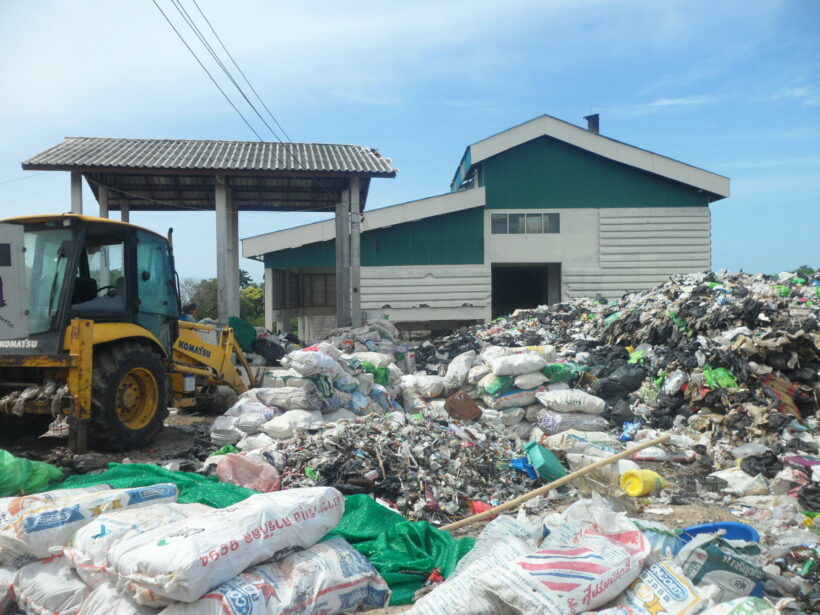19 October 2023 – The Global Alliance for Incinerator Alternatives (GAIA) Asia Pacific formally submitted its position on the proposed Philippine Sustainable Finance Taxonomy Guidelines (SFTG) to prevent the financing of industries that are harmful to the objectives of circular economy and just transition. Led by the Financial Sector Forum (FSF) of the Banko Sentral ng Pilipinas (BSP), the guidelines aim to classify investments and economic activities based on their environmental and social sustainability, shaping a path towards responsible investments in the Philippines.
GAIA Asia Pacific particularly commends the draft for its intent in addressing greenwashing, advocating a circular economy, and recognizing the negative impacts of landfills, waste incinerators, as well as other harmful activities like open burning of waste, open dumping, and the importation of toxic waste.
GAIA Asia Pacific recommended the classification of the waste sector as a climate adaptation sector and not only a climate mitigation area of investment to allow the mobilization of much-needed resources on development activities, awareness-raising and information sharing of best practices, reforms in waste sector regulation, reforms in spatial planning or the procurement process, research activities, and options which relate to risk management or disclosure.
The environmental network also highlighted critical gaps in the draft which could create pathways for environmental and social harm. GAIA Asia Pacific’s submission highlighted the need for alignment with Philippine laws that prohibit waste incinerators, as these incinerators produce greenhouse gas emissions and harmful byproducts that pose severe risks to both the environment and public health.
GAIA Asia Pacific also noted that the draft allows for the entry of high-risk projects as long as it demonstrates willingness to address those issues in a five-year remedial period which according to GAIA Asia Pacific, is not only too long for affected communities and the environment but also opens the door to continued generation of pollution, GHG emissions and human rights violations.
Further, GAIA Asia Pacific emphasizes the importance of harmonizing the SFTG with human rights conventions and international obligations, highlighting the need to broaden the definition of the impact on individuals residing near these investments.
GAIA Asia Pacific said that a taxonomy must demonstrate to investors and companies that sustainable economic activities require the provision of spaces for participation and access to grievance mechanisms as required in the Philippine Constitution and the human rights instruments as the foundation of a just transition to climate change action.
GAIA Asia Pacific also urged BSP to expand the consultations and conduct more stakeholder engagement on the guidelines. It also commented on the lack of information on the BSP website on the drafting, timelines of consultations and submissions, and a two-way feedback loop. The gaps indicate a limitation in consultation engagements from civil society and communities affected by harmful investments and will critically impact the SFTG’s initial positive intentions.
The development of the SFTG reflects the global demand for financing of real solutions to climate change and the prevention of greenwashing through clear-cut guidelines of which economic activities are truly contributing to environmental, climate, and social objectives. Some of the sustainable taxonomies adopted by economies include crafting sustainability taxonomies, the ASEAN Taxonomy for Sustainable Finance, the European Union Taxonomy (which the SFTG benchmarks against), and national initiatives like Indonesia’s Green Taxonomy edition 1.0 and the Securities Commission of Malaysia’s Sustainable and Responsible Investment (SRI) Taxonomy.
Additionally, GAIA Asia Pacific’’s active involvement in the ongoing consultation process on the Environmental and Social Framework of the Asian Development Bank (ADB) establishes an interconnected network of policy initiatives aimed at avoiding harm from development investments including climate change interventions that may in fact be false solutions.
Sources:
Zero Waste Europe. (2019 September). Waste-to-Energy is not Sustainable Business, the EU says. https://zerowasteeurope.eu/wp-
Zero Waste Europe. (2020 December). Sustainable Finance For A Zero Waste Circular Economy. https://zerowasteeurope.eu/wp-










